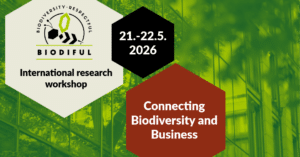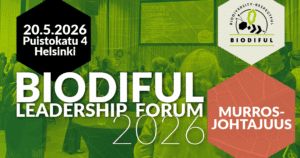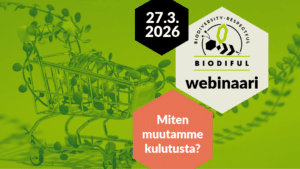Salo, M., Puustinen, S., Jounela, P., Hänninen, H. & Hiedanpää, J. (2024) The art of the ’common good’: Property and nature values in strategic land-use planning in Finland. Environmental Science & Policy. https://doi.org/10.1016/j.envsci.2024.103815
Abstract
Cutting across many biophysical, institutional, cultural, and psychological boundaries, the quest for the ‘common good’ is an enduring legitimation for land-use planning interventions that go beyond statutory planning, even supporting the emergence of new commons. We analyse a body of qualitative and semi-quantitative data from a recent strategic land-use plan process in Southwest Finland, including a series of planning documents and the results of a Q study. We describe how planners, citizens, and stakeholder organisations co-created a regional land-use plan and, focusing on the relationships between the practice of land-use planning and the legal structures of private property, ask how the commons were advanced in relation to private land ownership and how the different interpretations of the common good were reflected in the process. In the studied process, the planners strove to emphasise the commons and the common good by introducing new strategic land-use symbols. However, the emergence of new commons was seen as a threat by many landowners, their advocacy organisations, and regional decision makers. Instead of an unavoidable impasse, we urge that the situation should be seen as a call for novel solutions in the face of the ambitious and spatially explicit nature conservation commitments that increasingly contest the prevailing perceptions of the relationships of nature, property, and the distinct interpretations of common good.
Highlights
- Seeking the common good in land-use planning requires a vantage point that transcends property boundaries.
- Strategic land-use planning may contribute to the emergence of new commons that overlap private property.
- Leaving the topic of land ownership unattended in planning processes does not fade out the resulting tensions.
- Liabilities in the transition zones between private property and the commons need to be defined in societal dialogues.
Reseachers
Further information and interviews: Matti Salo, Sari Puustinen
PhD, docent (biodiversity and natural resources governance) Matti Salo (matti.salo@luke.fi) works in as Senior Researcher at the Natural Resources Institute Finland (Luke). His central fields of research include natural resources and biodiversity governance, associated conflicts and trade-offs, and collaborative and deliberative planning of resource and land use. In the BIODIFUL research project, Matti coordinates the work package 2 Future Landscapes.
Doctor of Science (Architecture), docent (Faculty of Humanities) Sari Puustinen (sari.puustinen@utu.fi) works as Senior Research Fellow at the Finland Futures Research Center. Her areas of expertise include sustainable development, environmental politics and policies, urban and regional planning, urban studies, perceived safety, mobility, housing, multi- and interdisciplinarity. In the BIODIFUL research project, Sari coordinates the work packages 5 Society.


